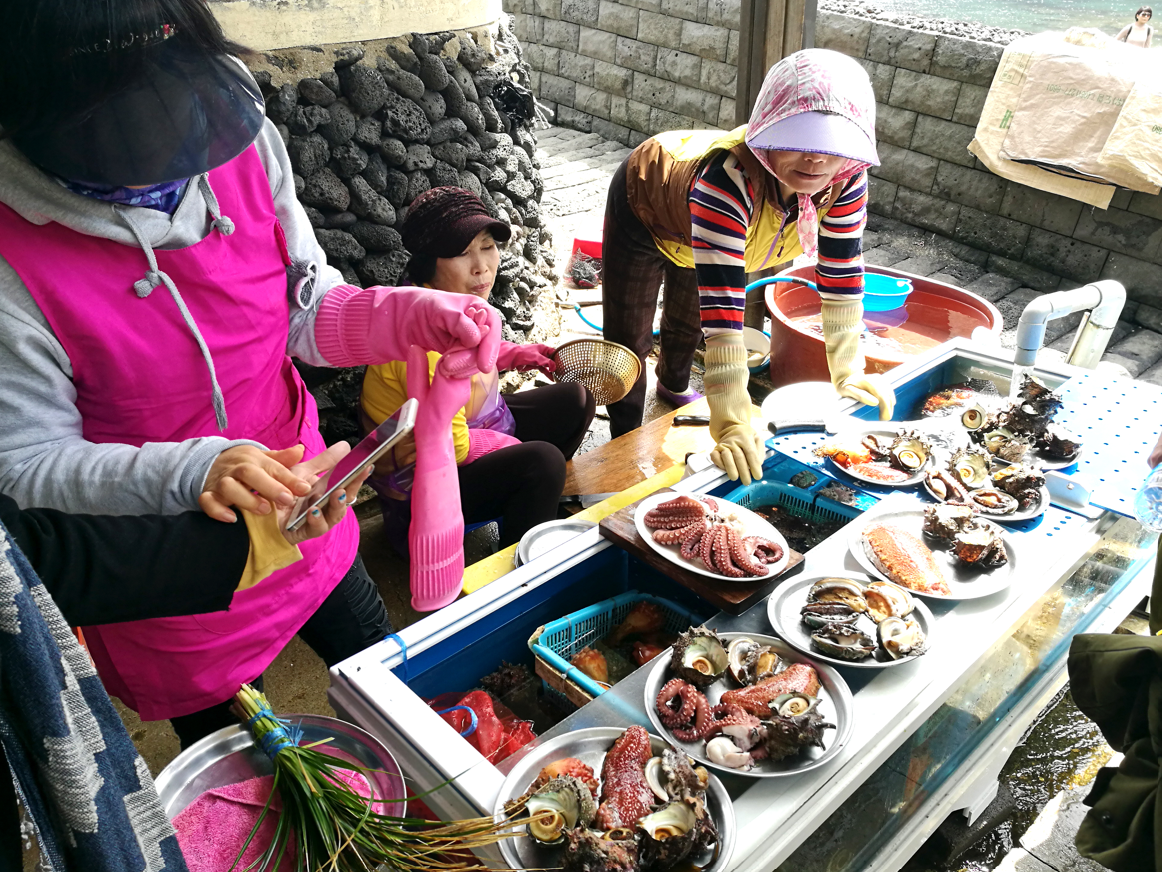Imprints of evolution can be seen among the Haenyeo of South Korea. After generations of foraging for food on the seabed, these all-women divers have fostered several genetic adaptations that allow them to freedive in chilly temperatures and for long periods.
The Haenyeo – literally “sea women” – are a group of women who live on Jeju Island, South Korea’s largest island where a unique culture holds on to life. These women, some well into their 80s, plunge up to 10 meters (33 feet) beneath the ocean’s surface without any breathing equipment, harvesting everything from abalone and sea urchins to seaweed and octopus.
Although each dive lasts just 30 seconds or so, a typical foraging session can stretch to four or five hours, demanding both endurance and resilience. Over generations, researchers propose, natural selection may have favored genes that help Haenyeo women thrive in these extreme conditions.
To explore this, scientists led by researchers at the University of California, Berkeley analyzed the genomes of 30 Haenyeo divers, 30 non-diving women from Jeju Island, and 31 individuals from mainland Korea. All participants were at an average age of 65 years old, matching the age of many active Haenyeo. The researchers didn’t stop at genetics. They also tested the women’s heart rate and blood pressure at rest and during “simulated dives,” which involved holding their breath while dunking their faces in cold water.
The study concludes that the Haenyeo may be one of only two known human populations that have evolved genetic adaptations for diving (the other being the Bajau “sea nomads” of Southeast Asia).
Firstly, the researchers found that residents of Jeju – both Haenyeo and non-Haenyeo – were distinct from people from mainland Korea, suggesting that people on the island are descended from the same ancestral population.
The fruits of hard work: A group of Haenyeo selling fresh seafood on Jeju Island, South Korea.
Image credit: Charlie Waradee/Shutterstock.com
Secondly, the Haenyeo were found to have an array of interesting gene variations that may help them cope with the pressures of diving. One gene is associated with cold tolerance, which could make the divers less vulnerable to hypothermia, while another gene is associated with decreased diastolic blood pressure. These variants were found in 33 percent of the population in Jeju and only 7 percent of mainland participants.
“This association may reflect natural selection to mitigate the complications of diastolic hypertension experienced by female divers while diving through pregnancy. Since Bajau women also dive while they’re pregnant, we wonder whether pregnancy is actually driving a lot of the genetic changes in these diving populations,” Melissa Ilardo, study author and geneticist from the University of Utah, explained in a statement.
When researchers simulated cold-water dives, all participants experienced a drop in heart rate as a natural reflex to conserve oxygen. But the Haenyeo stood out: their heart rates fell by an average of 18.8 beats per minute, compared to just 12.6 beats per minute among non-diving women from the same island. A slower heart rate during dives helps the body save energy and stretch limited oxygen reserves, a crucial advantage when diving repeatedly on a single breath.
Interestingly, genetic analysis revealed that the divers and non-divers from Jeju share the same ancestry, suggesting this enhanced response isn’t inherited. In other words, this particular skill of the Haenyeo is the remarkable result of lifelong training, not genetics.
“Because the Haenyeo have been diving for a very long time, their heart rate has been trained to drop more. This was something we could actually visually see – we had one diver whose heart rate dropped by over 40 beats per minute in less than 15 seconds,” noted Ilardo.
Sadly, like many of the world’s cultural quirks, the Haenyeo tradition is struggling to survive. The study explains that “young women are no longer continuing this matrilineal tradition; the current Haenyeo population, with an average age of around 70 years, may represent the last generation of Haenyeo divers.”
Nevertheless, the genetic and physiological traits shaped by generations of diving may leave a lasting legacy, not just as a cultural memory, but as a scientific resource. By studying how the Haenyeo adapted to extreme physical demands, researchers hope to uncover insights that could benefit modern medicine.
“We’re really excited to learn more about how these genetic changes may be affecting the health of the broader population of Jeju. If we can more deeply characterize how those changes affect physiology, it could inspire the development of therapeutics to treat different conditions, such as hypertensive disorders of pregnancy and stroke,” explained Ilardo.
The study is published in the journal Cell Reports.
Source Link: The Haenyeo "Sea Women" Of Korea Have Evolved For A Life Under The Sea
